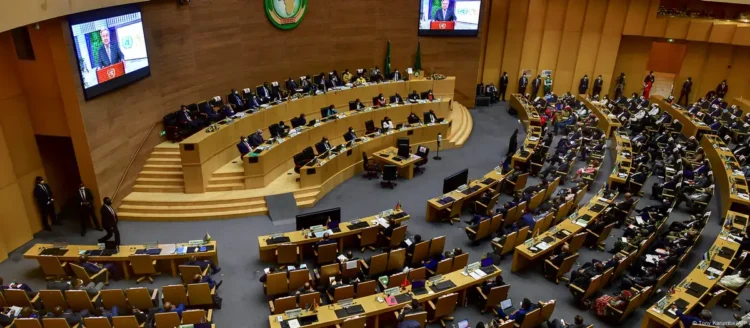The African Union Peace and Security Council (AUPSC) through a statement on February 19, 2025 ordered conflicting Sudanese factions to establish a humanitarian ceasefire starting from the holy month of Ramadan in March.
The international community made this appeal as Sudanese Armed Forces (SAF) and Rapid Support Forces (RSF) continue their violent conflict which has caused numerous civilian deaths while displacing large parts of the population.
The AUPSC issued an official declaration which focused on the growing hostility between parties in Sudan as well as the documented violations of international humanitarian law.
The council reaffirmed its request for an indefinite ceasefire combined with no conditions and a speedy conclusion to the conflict because battling through force will not yield a solution. The AUPSC issued a condemnation against outside entities which funded and supported the warring factions causing further escalation of the conflict by announcing an immediate end to such interference.
Population access to humanitarian aid requires safe and barrier-free access during the ongoing conflict according to the council. The council supported creating protected humanitarian channels to deliver vital assistance with special emphasis on Ramadan when the religious holiday was observed. Through the AUPSC it became clear that Sudanese leadership must take charge of an inclusive political dialogue to achieve sustainable peace in the country.
Together with the African Union the United Arab Emirates has demanded Sudan’s warring factions to pause fighting during the Ramadan period. UAE Minister of State Shakhboot bin Nahyan Al Nahyan made an appeal at the February 14, 2025 Sudan high-level conference in Addis Ababa for conflicting parties to establish a truce that would respect the holy month of Ramadan.
The delivery process of humanitarian aid to vulnerable populations which includes children and elderly people and women required protection from harm according to his point of view.
Although international organizations continue to try for peace the warring parties show little evidence they intend to maintain a truce. Peace agreements between the conflicting parties have previously failed to endure because each side has violated the terms.
The AUPSC uses the religious importance of Ramadan to pursue peace through temporary hostilities halt so relief efforts can operate freely while making space for fruitful political dialogues.
The continuous conflict in Sudan has created an extreme humanitarian crisis because millions of people require urgent help after becoming displaced from their homes. The African Union partly leads international advocacy for peace in Sudan alongside other actors while stressing that cooperation through inclusive methods leads to enduring conflict resolution.





